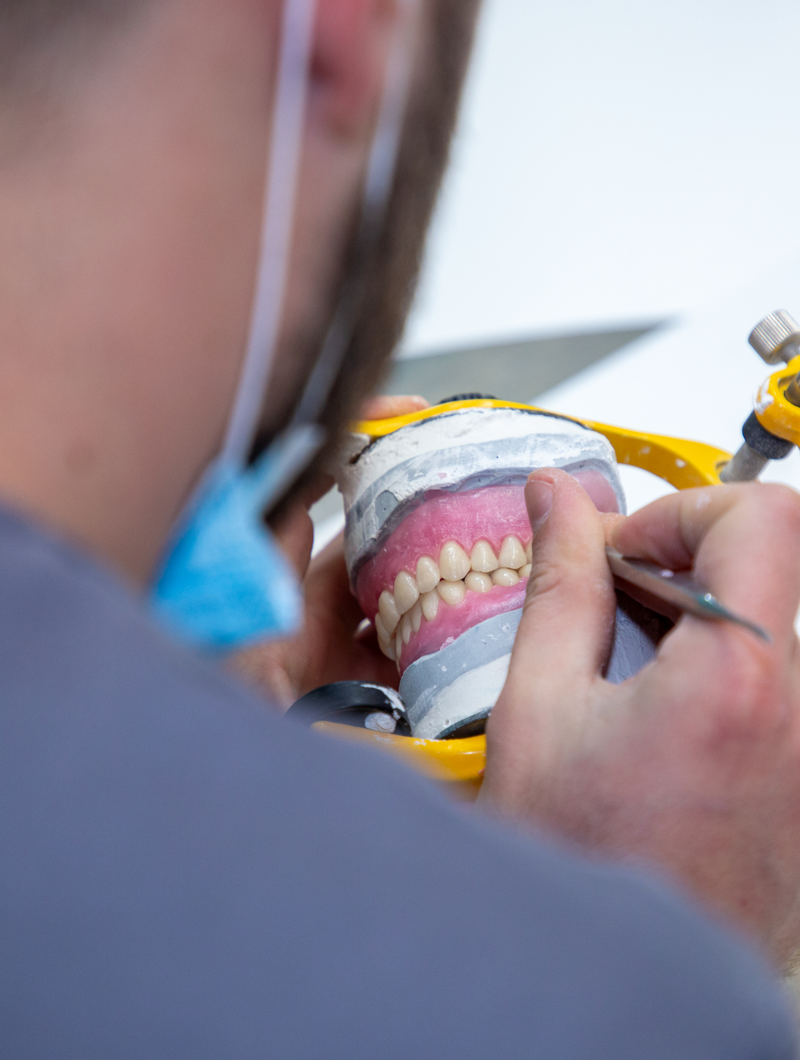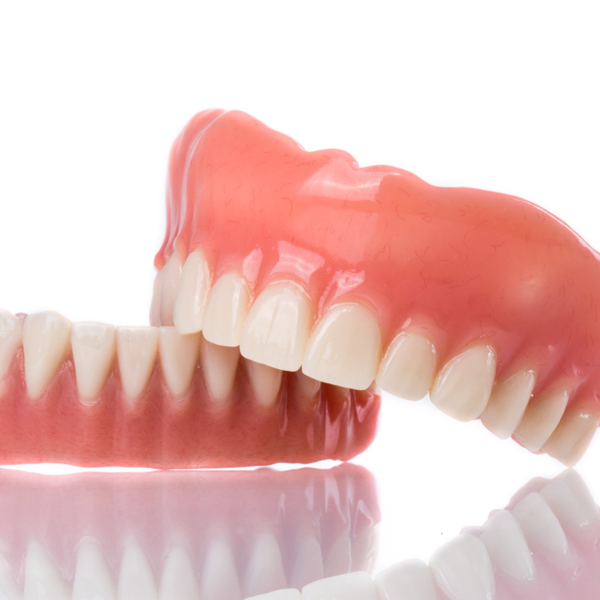Removable dentures
Removable dentures are an ideal, affordable and long-lasting solution for restoring full functionality and natural appearance to your teeth. These dentures provide a dazzling smile and restore your confidence, while providing comfort and long-term satisfaction.


What are removable prostheses and what are they used for?
Mobile prostheses are an ideal solution in situations where patients are missing teeth, and fixed prosthetic works are not possible due to specific dental conditions. This type of prosthesis is not fixed in the jaw and can be easily removed, which makes it easy to maintain.
Modern materials and technology allow us to make prostheses that are comfortable, functional and visually attractive. Mobile prostheses allow you to return to the natural appearance of your teeth and complete chewing functionality.
Who is the ideal candidate for a mobile prosthesis?
Mobile dentures are suitable for patients who are missing several teeth or even all teeth on one jaw. They are ideal for older patients whose teeth have weakened due to natural aging, but also for younger people who, for various reasons, cannot have fixed prosthetic works.
What are the advantages of removable dentures?
- High-quality materials and modern technology – we make removable dentures from materials that ensure durability and comfort.
- Diverse options – we offer different types of removable dentures, including complete, partial and combined dentures, to find the best solution for your needs.
- Affordable price – our goal is to make our services accessible to all patients, which is why we offer removable dentures at affordable prices.
- Fast fabrication and installation – we make dental dentures in a short time, and the installation of the denture is painless and efficient.
Types of removable dentures
Complete (total) dentures
Complete dentures are used when a patient has lost all of their teeth on the upper or lower jaw. They consist of a base that covers the gums and on which artificial teeth are placed. The denture adheres to the mucosa and can be made of acrylic or with a metal core made of Wironit alloy. This type of denture allows for the complete restoration of chewing functionality, speech and aesthetics.
Partial dentures
Partial dentures are used when a patient has lost several teeth, while the other teeth remain intact. Partial dentures are attached to the remaining healthy teeth by clasping and have elements that transfer chewing force to the remaining teeth. Modern partial dentures have invisible clasps, which allows for a more natural look.
Combined work
Semi-fixed or combined work includes elements of a fixed bridge and mobile dentures: the denture is attached to the bridge, which provides stability and comfort. This type of work provides patients with complete oral cavity rehabilitation in a shorter time and at an affordable price.
Prosthesis on the crossbar
Prosthesis on the crossbar - uses dental implants as a basis and enables patients with complete edentulism to regain the functionality of chewing without a palate. The prosthesis is mounted on four dental implants, and can be removed as needed.
The process of making removable dentures
Frequently asked questions
When is the best time to decide on a mobile prosthesis?
Mobile prostheses are the ideal solution when fixed prosthetic options – such as bridges or implants – are impossible or inappropriate due to certain dental conditions. They are most often recommended to patients who have more toothlessness, either in the entire jaw or only in certain areas. Prostheses can also be a solution for patients who, for medical reasons, cannot tolerate more invasive procedures. In addition, mobile prostheses are often an excellent solution for the elderly or patients whose teeth have weakened due to natural aging, but still want to restore the functionality and aesthetics of their teeth. Mobile prostheses can also be used as a temporary solution until more complex prosthetic procedures are performed.
What are the advantages of removable dentures over other prosthetic options?
Removable dentures have several key advantages over other prosthetic options. They are primarily more flexible and affordable, while still allowing you to restore chewing function and smile aesthetics. In addition, removable dentures are not permanently fixed, which means you can easily remove them for cleaning, and they also allow you to maintain the health of your remaining teeth and gums. Removable dentures can be adjusted quickly and easily, and in patients with partial edentulism, the denture can replace only the lost teeth - without the need for procedures on healthy teeth. If the entire jaw is toothless, complete dentures are an effective way to restore function and aesthetics. Removable dentures are less invasive than implants or bridges, making them a better choice for patients who want to avoid surgery.
How will I feel after getting my dentures? Will there be any discomfort?
After getting your dentures, there may be some initial discomfort, especially if they are not perfectly adjusted to your gums and jaw. This is completely normal and usually lasts up to a week. The dentures may also cause slight irritation to your gums, especially at first. However, these discomforts are temporary and you will get used to wearing your dentures over time. With proper fitting and guidance from our experts on wearing and cleaning your dentures, the discomfort will decrease. If you experience pain or discomfort after a few days, we recommend that you contact our team to discuss any necessary adjustments. Please note that fitting your dentures is individual and depends on the condition of your gums and teeth.

"Removable dentures are an excellent solution for replacing lost teeth, especially when fixed options are not possible. With quality materials and modern techniques, we ensure the comfort and functionality of dentures, and our goal is to restore patients' smiles and functionality - with maximum comfort and long-term results."
dr. Lucija Spreitzer, dr.med.dent.